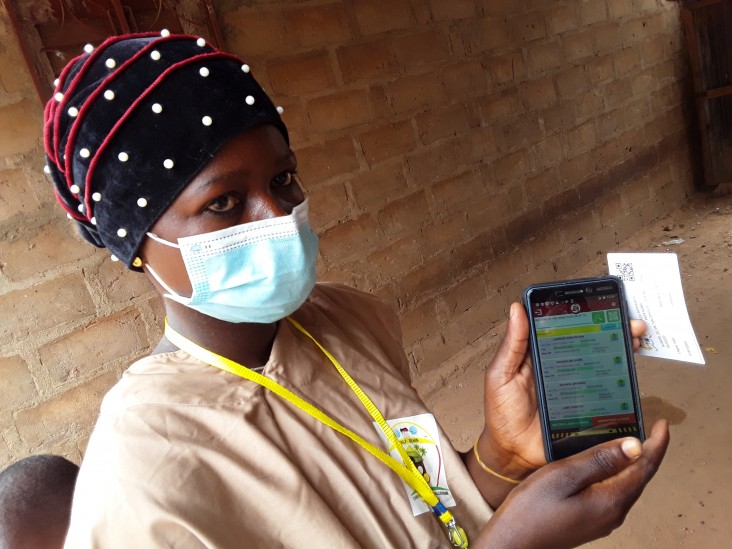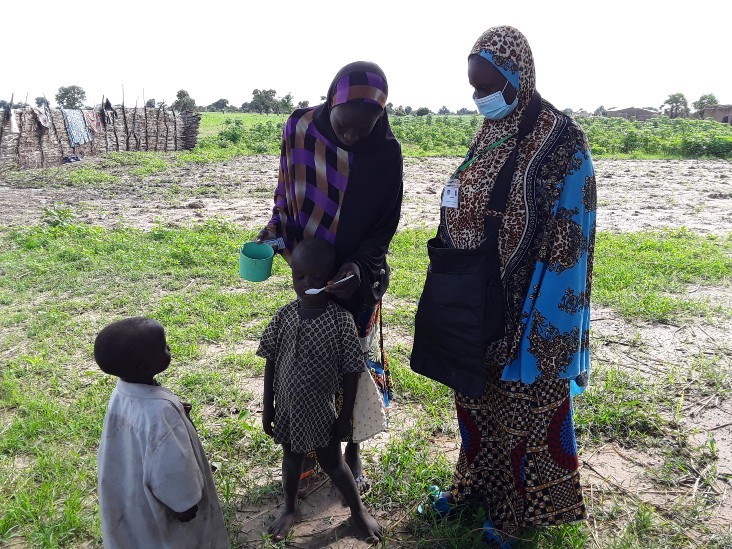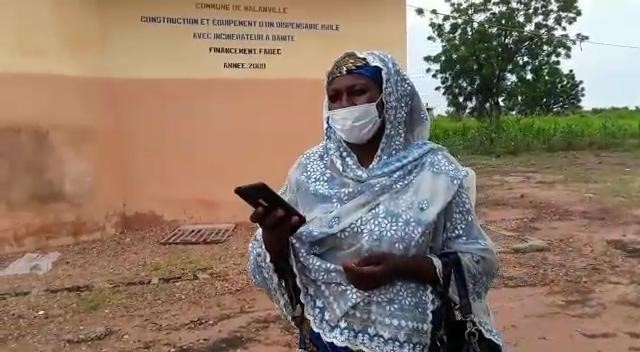Speeches Shim

While the rainy season brings welcome relief to farmers in northern Benin, the wet weather also brings an unwelcome guest: mosquitoes. These mosquitoes can spread malaria, a disease that threatens hundreds of thousands of children’s lives across the region.
But malaria can be prevented with several interventions, including medications provided during seasonal malaria chemoprevention (SMC). When the summer rain arrives, health workers supported by USAID through the U.S. President’s Malaria Initiative (PMI) treat children with four monthly rounds of SMC.
Research and previous experience show that it works. During the 2019 campaign, the PMI and USAID-supported Integrated Health Services Activity, led by Management Sciences for Health, treated more than 100,000 children below the age of five -- reducing malaria cases by 50 percent compared to the last two years -- in Malanville-Karimama and Tanguiéta-Matéri-Cobly, two of Benin’s health administration zones in Alibori and Atacora, respectively. Seeing this success, PMI and USAID partnered with the Global Fund, which supported treatments in Banikoara and Kandi-Gogounou-Ségbana, to cover all of Alibori this year.
With almost triple the number of children targeted, health workers faced a challenge. They needed better tools to track drug treatments, to ensure the right children received the right doses each month.
In partnership with Benin’s National Malaria Control Program and Catholic Relief Services, the activity developed a new offline app to ease data collection, improve data accuracy, and facilitate real-time decision-making. Armed with a smartphone and a small solar panel to keep it charged in remote locations, health workers no longer needed long, complex forms for data entry and had all the information in the palm of their hands. Once entered, the data could be synchronized and uploaded after the health workers returned from the field.
“The use of smartphones helped workers work faster, as the search for the name of a child is easier [with a QR code],” said Salé Gounou, a health worker in the village of Mokolé, Alibori.
New circumstances, new challenges
During the first round of treatment in July, the health workers had challenges with the app, such as finding children who were not recorded in its database and configuration problems. These issues were corrected with app modifications and additional training for the health workers before subsequent antimalarial treatments.
They also had to contend with COVID-19, which was first detected in Benin in March. Prioritizing the need to prevent the spread of the coronavirus, the activity put in new safety protocols for its 1,500 health workers. It increased the number of training sessions to promote social distancing and required the use of masks, hand sanitizer, and soap. The activity also provided disposable spoons for parents to administer the malaria medications to their children and avoid cross-contamination.

More than 300,000 children protected this year
By October, 302,448 children had received antimalarial medications across the four targeted areas, with 95 percent of the children receiving all four rounds. This year’s campaign also achieved similar success as last year in Malanville-Karimama and Tanguiéta-Matéri-Cobly, despite the challenges with the app and COVID-19.
Dr. Hortense Kossou, Principal Technical Advisor for the activity, agreed:
“The [smartphone app] helped better monitor health agents and sometimes bad practice. We noticed, for example, that one health worker had treated 40 children in 10 minutes, while it is only possible to treat a maximum of two children during that time. With this system, we were able to immediately notice and fix this practice.
“Despite a tricky start during the first round [of SMC], the digital approach was a positive experience, from having real-time results to opportunities that it offers in making the campaign even more efficient next year. We thank USAID, PMI, the Global Fund, all our implementing partners, and all the health zones of each department for their involvement in the fight to reduce mortality due to malaria.”

This story was originally published by the U.S. President's Malaria Initiative here.

Comment
Make a general inquiry or suggest an improvement.